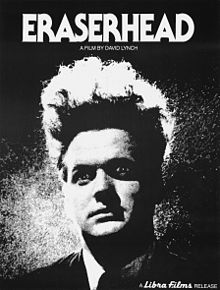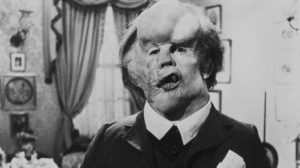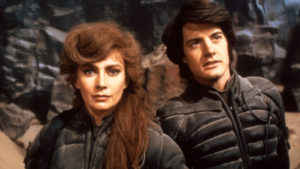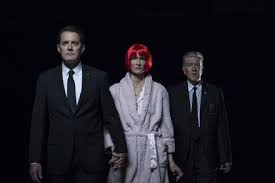David Lynch, who rarely ever reaches conclusive endings in his works, has long been one of the most polarizing directors in Hollywood. Fans say he’s a genius; critics say he intentionally makes everything he does confusing. However, regardless of one’s specific opinion on Lynch, he is still clearly one of the most influential directors to ever produce an American work.
Lynch’s first major work was the wonderfully weird Eraserhead (1977). In this film, Henry Spencer (Jack Nance) tries to make it through difficulties in life, including his girlfriend, work environment, and his mutant baby.

It’s as strange as it sounds. Audiences love Eraserhead, and the film put Lynch on the map.
He followed it up with The Elephant Man (1980), which garnered eight Oscar nominations, and is thought by many to be one of the best films ever produced.

Covering much of the adult life of a severely disfigured man (John Hurt), the film shows that one should never judge a book by its cover, and heavily promotes kindness and love.
By the early 1980s, Lynch was very well-known throughout Hollywood due to the success of Eraserhead and The Elephant Man. In 1984, his success led him to direct the movie adaptation of Dune, a sci-fi adventure film about a group of warriors who battle a galactic emperor for freedom after their leader’s father is killed.

This was Lynch’s biggest failure; it simply wasn’t him. Lynch readily admits this, and seemed to realize soon after its critical and box office failure that he wasn’t made to direct attempts at blockbusters. Instead, he was put on this earth to focus on the weird, fantastical, and strange.
He followed up Dune with the Oscar-nominated films Blue Velvet (1986) and Wild at Heart (1990). Both delved back into the weird, and put Lynch back on track to being one of the most influential directors in the history of Hollywood.
What really put Lynch on the map, however, was the television series Twin Peaks (1990-1991). In what is the 44th-highest rated show of all-time, according to IMDb.com, Lynch produced a show that changed the crime drama genre forever. Following a strange FBI agent (Kyle MacLachlan) as he investigates the murder of Laura Palmer (Sheryl Lee) in the increasingly odd town of Twin Peaks, the show includes elements of crime, fantasy, adventure, comedy, and drama.

Plus, the show is heavily serialized, meaning that conclusive endings are not reached by the end of each episode. It is one of the first television shows billed as a crime drama to ever include elements of fantasy and serialization, and can be considered to be a main reason why shows such as The Killing (2010-14), Hannibal (2013-15), The X-Files (1993-2018), True Detective (2014-present), and Medium (2005-11) were able to be produced, and gain decent followings. Without Twin Peaks – without Lynch – the crime drama genre would likely look very different today.
2001’s Mulholland Drive, starring Naomi Watts and Laura Harring, is perhaps Lynch’s most well-known work. Centered around a woman (Harring) who is in a horrible car wreck that leaves her amnesiac before finding Betty (Watts), a young woman with hopes and dreams of becoming a star actress, takes her in, Mulholland Drive blends fantasy and reality in a way that only Lynch can.

It is impossible to fully understand, and there are many, many fan theories about the events that take place in the Oscar-nominated film. Lynch is at his best when his films are theorized about for years to come, and Mulholland Drive showcases his innate ability to create worlds that completely wrap the audiences in confusion and intrigue.
Finally, in 2017, Lynch did the unthinkable. With the backing of Showtime, Lynch revisited Twin Peaks 25 years after its initial unforgettable run ended. Bringing back all of the actors that he could, including luring a few of them out of retirement, Lynch spent years creating one of the craziest, most groundbreaking television shows of all-time in Twin Peaks: The Return (2017). As with the original airing of Twin Peaks, The Return ends on a very open-ended note, and leaves just as many questions as it provides answers. Lynch co-wrote and directed all 18 episodes of The Return after having not directed any full-length films/TV shows since Inland Empire in 2006. The Return features incredible imagery including a visual of an atomic bomb, otherworldly elements, actors playing multiple characters, a three-minute scene of a man sweeping the floor of a bar with zero dialogue, and even a talking tree with brains on its branches. It is simply groundbreaking, and nearly incomprehensible, left completely up to the viewer’s interpretation.

The fact that Lynch was able to include such fantastical elements, and answer so few of the lingering questions from the original run of Twin Peaks is 1) a testament to Showtime and their boldness, and 2) could change the television drama forever… again.
All things considered, American entertainment would likely look very different today had Lynch never existed. He introduced all things weird, strange, and fantastical while, outside of a failure in Dune early in his career, staying true to himself and his directorial roots throughout his entire career. Lynch never makes anything unless he absolutely wants to, and never produces more or less than what he sees fit – this is evidenced in the fact that he backed out of The Return until Showtime allowed him to make 18 episodes, exactly how he wanted to make them.
Without David Lynch, American entertainment would be entirely different. Regardless of one’s feelings on his works, it is an inarguable fact that Lynch is one of the most influential directors of all-time.




